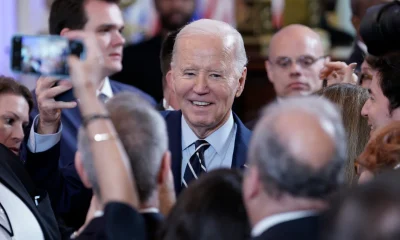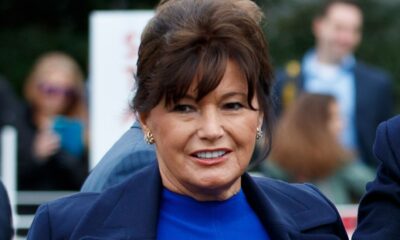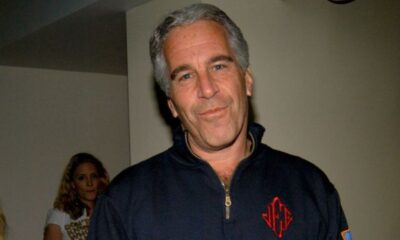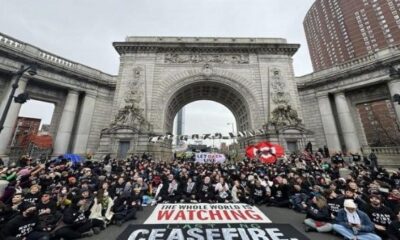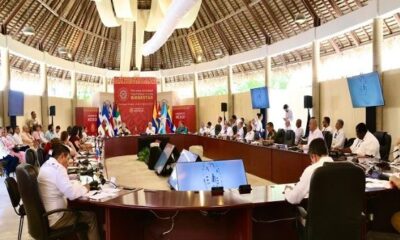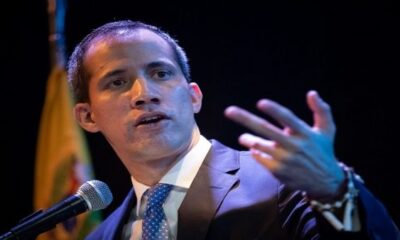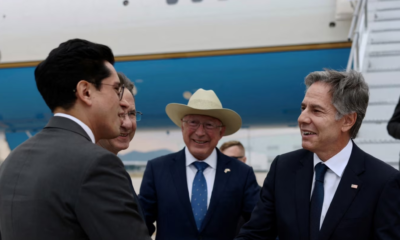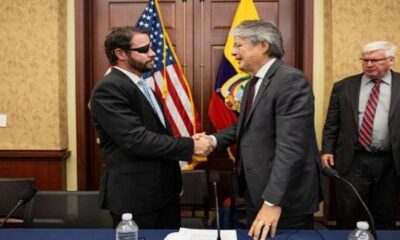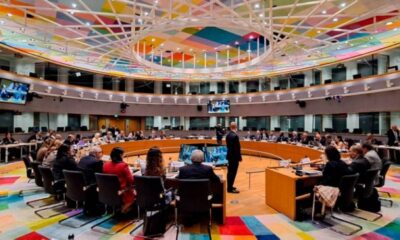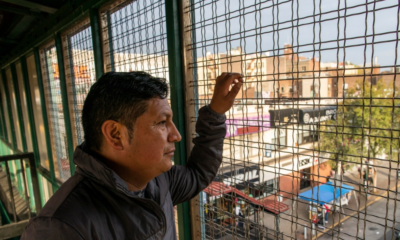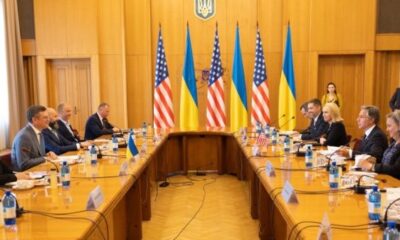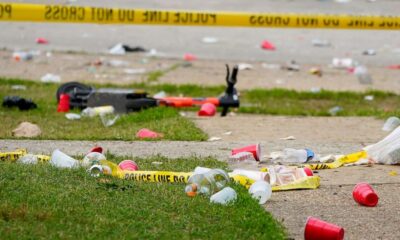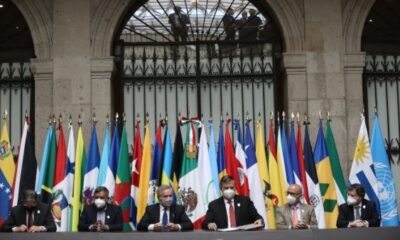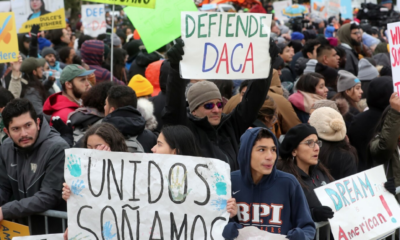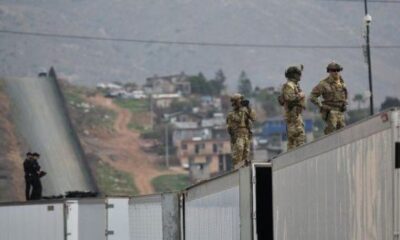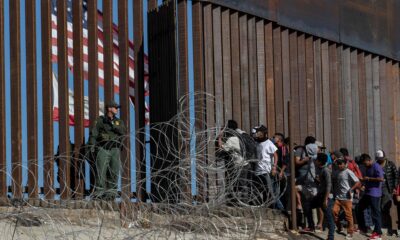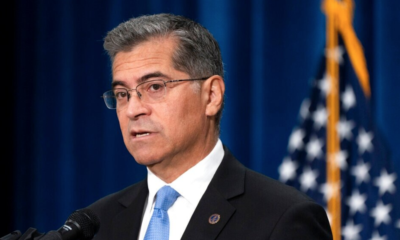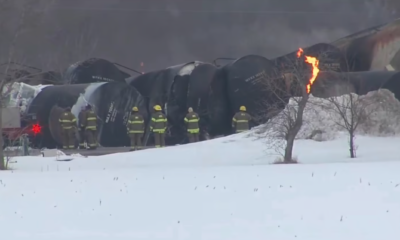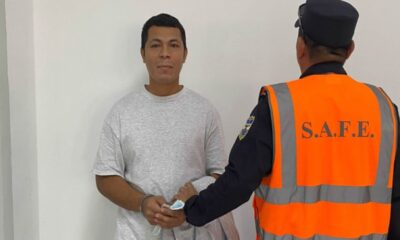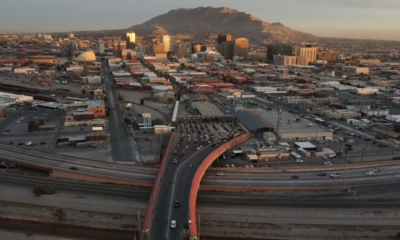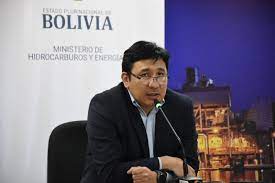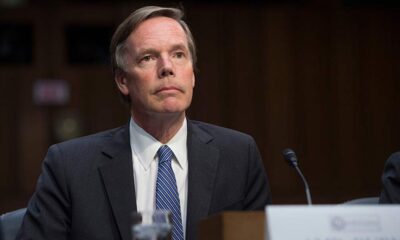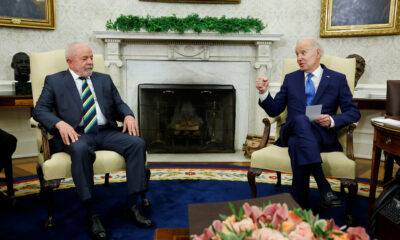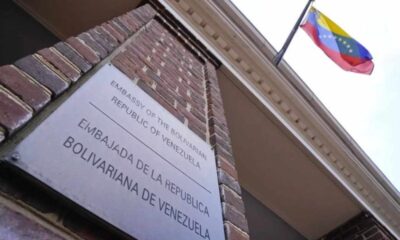International
US bets on new approach to anti-drug policies in Latin America
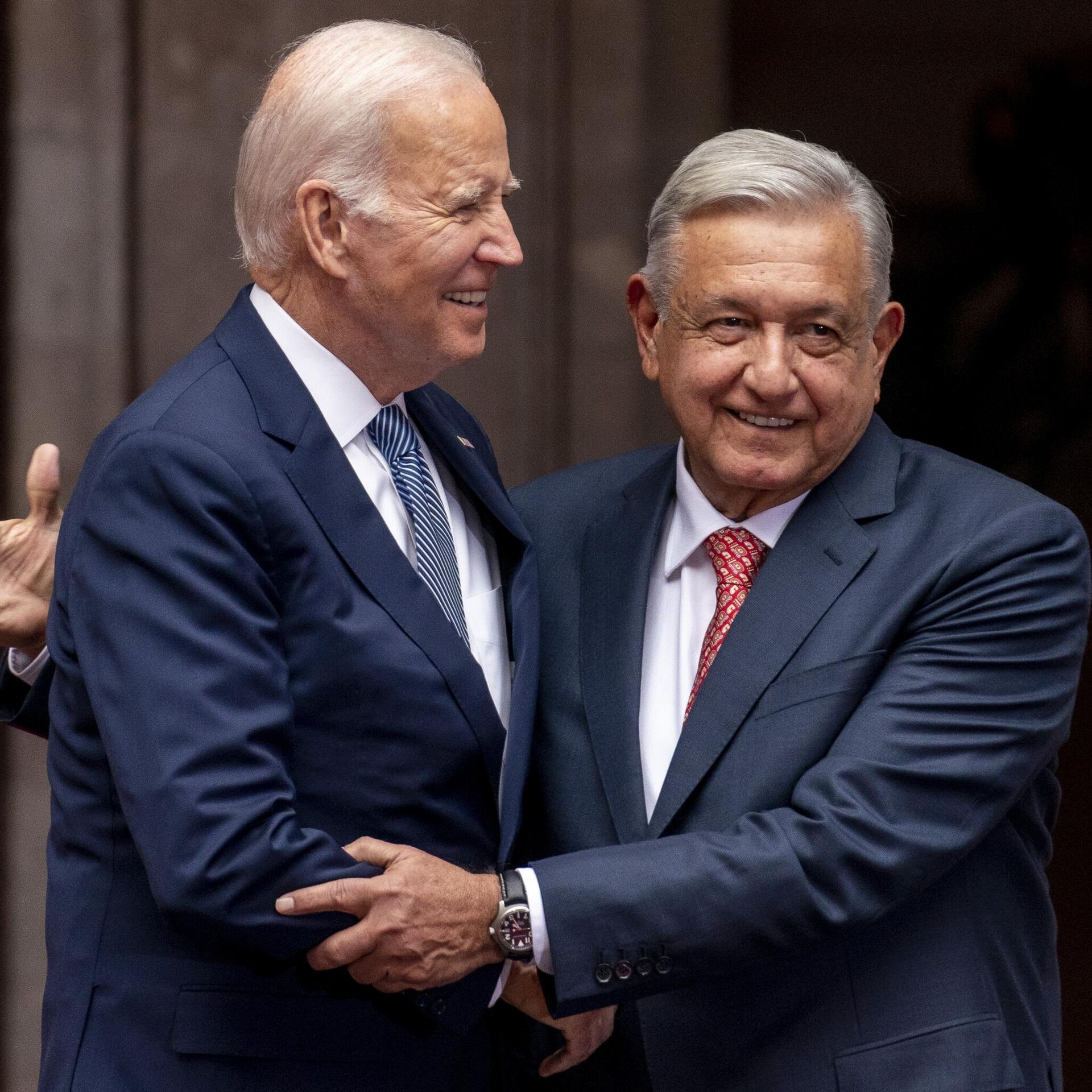
February 14th |
The Biden administration will redouble its domestic efforts and binational cooperation with Mexico to combat the fentanyl crisis in the United States, which has resulted in 70,000 overdose deaths annually.
In an interview with Voice of America, the director of the White House Office of Drug Control Policy, Rahul Gupta, indicated that the fentanyl crisis “does not begin or end at the border”, despite the fact that, according to official data, the vast majority of the synthetic opioid is produced by Mexican cartels and enters the country through the southern border.
The U.S. Drug Enforcement Administration (DEA) reported seizing enough fentanyl in 2022 to potentially have killed the entire U.S. population.
Gupta acknowledged that “there is no question” that “mistakes have been made in the past,” referring to U.S. anti-drug policy and its cooperation with countries in the Western Hemisphere. His statement is an alternate response to the position of Colombian President Gustavo Petro, who has called the anti-drug policy of several U.S. administrations “a failure”.
Question: What are the next steps this administration will take on the fentanyl crisis?
Answer: It is a priority for President Biden. When he went to Mexico to talk to President Lopez Obrador, as well as Prime Minister Trudeau, this was one of the most important things he also talked about. It’s important that we make sure that we have educational campaigns, especially so that children are aware and understand that they have the power not only to be aware of this deadly threat, but also to have Naloxone, the antidote, so that they can help their friends and others. In addition, making sure that we have the treatment available to everyone who needs it – we know that too many Americans today cannot get the treatment – then, along with the antidote, getting more people treated.
In this administration, President Biden highlighted how we have reached the highest levels of fentanyl seizures at the border, double that in 2020 and four times that in 2019. Why? Because we have implemented technology to be able to detect more. But the problem doesn’t start or end at the border. We have to work with Mexico. We have to work with them because we have a shared responsibility for the safety, security and health for the people of both countries.
What exactly is Mexico’s role in this strategy?
Mexico has a very important role as our neighbor to the south, as well as a long-time partner. Our relationship is often complex, but we know that people in Mexico are dying from overdoses and fentanyl intoxication just as they are in the United States. So, it’s very important that we work with a shared sense of responsibility, make sure that we are working to protect our country, that we are going after the bad actors who are intent on harming Americans and Mexicans.
At the same time, we are working to improve public health treatment and the antidote Naloxone, or Narcan, and make it available to anyone who needs it.
When President Biden says the U.S. will hold producers and traffickers accountable here in the U.S., how much does the U.S. trust Mexico on this issue?
It’s very important. As you know, in this administration we have some of the highest numbers of extraditions. We have made sure that we provide assistance to Mexico, in partnership, as a key player in helping us, but we also want to make sure that traffickers, manufacturers and others are held accountable for their actions in taking advantage of vulnerable people. This is important because we want to make sure that they do not profit at the expense of unsuspecting people dying and being poisoned. So it is important, whether in the United States or across the border, that our governments hold bad actors accountable in a strong way.
How close or far do you think the United States is from reversing the trend of fentanyl overdose deaths?
If you look at it, we’ve had over 107,000 [deaths]. And, clearly, the numbers were rising before the pandemic and were exacerbated during the pandemic for obvious reasons, like social isolation, the initial shutdown of treatment and all of that. During the pandemic, especially with President Biden’s leadership, what we’ve seen is more telehealth, which means more health care assistance to provide treatment to people in rural areas, in underserved communities through telemedicine.
We also saw the removal of barriers. And we have also seen an increase in prescribing of antidotes and treatments. Because of some of these activities, combined with the seizure of more fentanyl and the prosecution of traffickers, we are seeing in five months in a row a decrease in the number of people dying from fentanyl overdoses. But let me tell you, that’s not enough, because, while we’re happy to see nearly 3,000 lives saved, we have a long way to go.
Does this White House believe that the war on drugs is a “failed campaign,” as the president of Colombia has called it?
Let me tell you this: when President Petro took office in Colombia early last year, I helped him and worked with him as the first U.S. delegation. We had a good long conversation about it, and I said, “look, we recognize that not all U.S. policies have proven to have been successful, but the important part is that we have a problem where an American dies every five minutes all day long. You have a problem where the economy is very dependent on cocaine production. We need to work productively in our 200-year relationship to see how we can secure a future for both the American people and the Colombian people in a way that complements each other.
And we need to see a way forward that is humane, that protects the environment. Because I flew over with Vice President Marquez and I saw the destruction of illegal mining in the Amazon, illegal crops, and it’s not helpful for Colombians, even because they are looking for a good life, good quality of life. So, it is very important for us when we think about this, to do it in a way that is productive and that is mutually beneficial for security and health.
But would you call the war on drugs a “failed campaign”?
The way I would put this would be: we didn’t even know a few decades ago that addiction was a brain disease. We didn’t know that it is not a disease of choice but a disease of the brain that affects the whole body. We also didn’t know, we now know, that incarcerating yourself doesn’t get you out of trouble. So what are we doing now? We are trying to work to bring treatment to every prison and jail in the United States.
So, what I would answer is very clear, mistakes have been made in the past, there’s no question about that. However, what we need going forward is to look at how we work with public health, public safety, collectively to solve this for Americans, solve this for other people and countries around the world, and the urgency demands that we do it, and we do it in a hurry.
And how do you frame this strategy on drug producers in Colombia and other countries in the Western Hemisphere? Because here in the United States, of course, there is a framework on the public health issue, but they are also trying to catch the bad actors in this. So how do you find that part of this strategy?
When you look at a single mother in Tumaco, Colombia, who is producing coca for her children as a way of life to survive, it’s not so much about crime as it is about livelihood. So, the way we look at this is that we have to make sure that these farmers have the ability to own their own land. Let’s make sure that they have the ability to grow crops that can be exported globally and that they can make a living. It’s very important that as President [Biden] talks a lot about jobs and the importance of jobs, infrastructure in the United States, it’s the same in a way for every country in the world that we have to figure out how to get people gainfully employed, give hope and the ability to have that economic development as a way to address that. And those are exactly some of the things that we’re going to be working with countries like Colombia.
What about the other countries in the Western Hemisphere? How is cooperation on this drug issue?
We know that trafficking and smuggling is a hundreds of billions of dollars business. We know that drugs not only kill Americans, but the profits come back to cause destabilization, more crime and corruption and violence [in those countries]. It’s very important to us as a world leader that we continue to work as good partners with other countries in Latin America. And there is a history of us working with them, but we make sure that we are doing it in a way that gives us results, mutual respect and cooperation so that we can put the weight of the law on the bad actors, while ensuring that people everywhere have the opportunity to live in a safe and healthy way.
And finally, what about Venezuela? There is no relationship or cooperation between the two governments, of course, but Venezuela remains a key player in this industry.
Well, we will continue to focus with our partners in Colombia, and also in Ecuador, to make sure that the people there get the support in terms of both the people coming from Venezuela and the resources. That work will continue, but I don’t have anything new to report on that at this point from a policy change perspective.
International
Federal Judge Blocks Trump Policy Allowing Deportations to Third Countries

A federal judge ruled on Wednesday that the policy of U.S. President Donald Trump’s administration allowing immigration authorities to deport foreign nationals to third countries without prior notice or the opportunity to object is unlawful. The decision marks another legal setback for the administration on immigration matters.
Judge Brian Murphy of the U.S. District Court for the District of Massachusetts struck down the regulation issued last year, which stated that Immigration and Customs Enforcement (ICE) was not required to notify migrants if they were to be sent to countries other than the one listed in their removal order, provided that receiving nations offered assurances they would not face persecution or torture.
Murphy ordered the measure vacated but granted a 15-day delay before the ruling takes effect, giving the Trump administration time to file an appeal.
In his decision, the judge concluded that the policy violates federal immigration law and migrants’ due process rights. He also questioned the lack of transparency surrounding the alleged assurances provided by receiving countries, stating that “no one really knows anything about these supposed ‘assurances.’” He added, “It is not right, and it is not lawful.”
The ruling follows several legal disputes involving deportations to third countries. Last year, the executive branch deported more than 200 Salvadorans to a maximum-security prison in El Salvador, invoking an old wartime law. The White House also held talks with Costa Rica, Panama, and Rwanda about receiving migrants who are not citizens of those countries.
In May, the same judge determined that the government violated a court order when it attempted to remove a group of immigrants with criminal records to South Sudan without prior notice or an opportunity to raise claims of fear of persecution.
Although President Donald Trump took the case to the U.S. Supreme Court, which temporarily allowed the deportations to resume while a final decision was pending, the White House is expected to again appeal to higher courts to overturn this latest judicial ruling.
International
Cocaine Production Surges 34% in 2023 as Market Expands into Africa and Asia

The global cocaine market is the fastest-growing among all illicit drugs worldwide, the International Narcotics Control Board (INCB) warned on Thursday in its annual report presented in Vienna.
The body attributes this expansion to the sustained rise in production in South America — particularly in Colombia — as well as increasing demand in emerging regions such as Africa and Asia.
According to the report, global cocaine production surpassed 3,700 metric tons in 2023, marking a 34% increase compared to 2022. This growth is largely driven by the expansion of illicit coca cultivation in Colombia and the greater production capacity of clandestine laboratories.
The INCB noted that the market has not only grown in volume but has also diversified and become more globalized. While Europe and North America remain the primary destinations, trafficking routes now reach “all regions of the world,” including Africa — traditionally considered a transit zone — and Asia, where the presence of cocaine was previously marginal.
In Western and Central Europe, for the fifth consecutive year, seizures in 2023 exceeded those in North America, consolidating the region as the leading destination market. Between January 2019 and June 2024, more than 1,826 metric tons of drugs bound for European ports were seized, of which 82% was cocaine, equivalent to 1,487 metric tons.
The report also highlights that seizures in Africa rose by 48% in 2023 compared to 2022, reflecting the expansion of the market on the continent. Globally, the number of cocaine users increased from 17 million in 2013 to 25 million in 2023.
International
Clinton Accuses Republican Committee of Using Epstein Case to Shield Trump
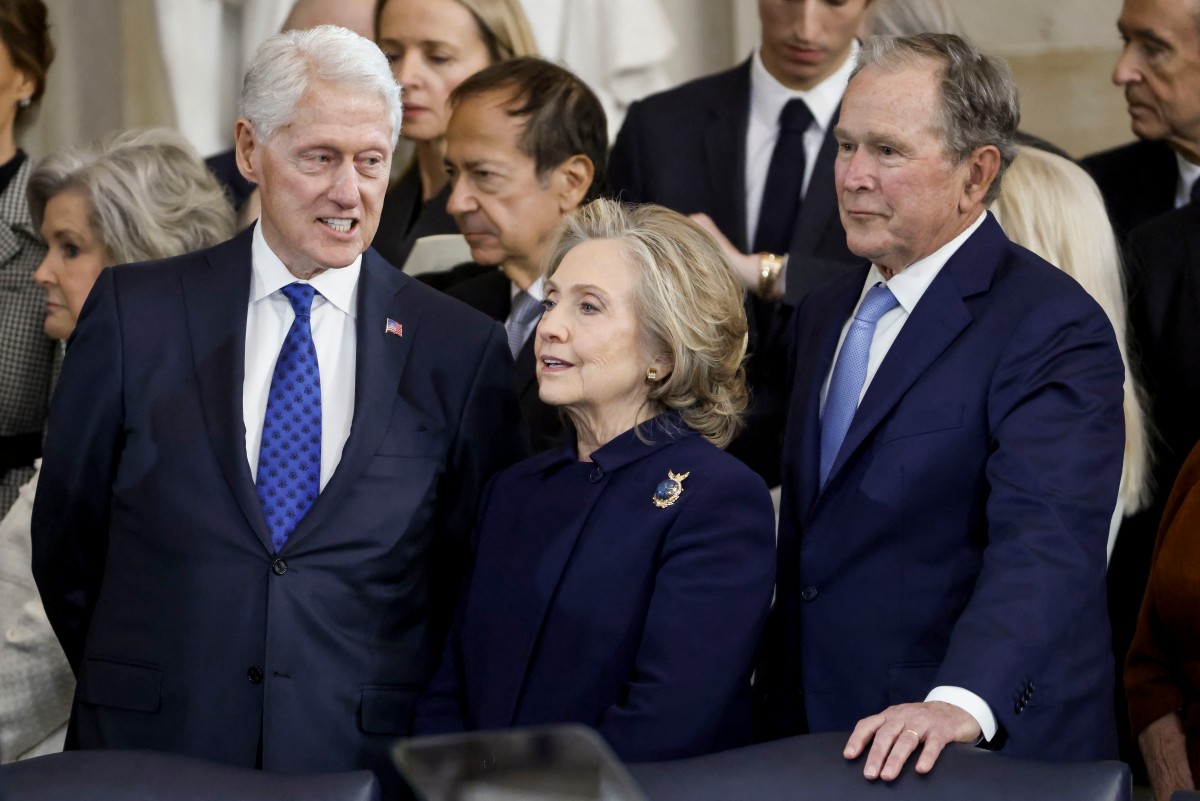
Former U.S. Secretary of State and former First Lady Hillary Clinton denied on Thursday before a congressional committee that she had ever met convicted sex offender Jeffrey Epstein in person or had any knowledge of the crimes he committed.
Clinton testified behind closed doors from New York before the House Oversight Committee. The wife of former President Bill Clinton — who is scheduled to testify on Friday — accused the Republican-controlled committee of summoning her in order to “distract attention” and “cover up” the activities of President Donald Trump, who had past ties to Epstein.
“I do not recall ever meeting Mr. Epstein. I never flew on his plane nor visited his island, his homes, or his offices. I have nothing further to add,” she stated.
The former Secretary of State emphasized that she “had no idea about the criminal activities” of the financier, who died in prison in 2019. “Like any decent person, I was horrified when I learned of his crimes,” she said.
Clinton described the Epstein case as “a tragedy” and “a scandal” that deserves “a thorough investigation,” but criticized the committee for failing to summon what she called the truly relevant individuals.
“Instead, you have asked me to testify, knowing that I have no knowledge that would serve your investigation, with the purpose of distracting from President Trump’s activities and shielding him despite the legitimate demand for answers,” she said.
The questioning, conducted behind closed doors in Chappaqua, New York — where the Clintons reside — took place one day before former President Bill Clinton was scheduled to appear at the same location.
Although the Clintons initially declined to testify before Congress, the threat of being held in contempt ultimately led the former presidential couple to agree to appear and explain their relationship with Epstein.
-

 International1 day ago
International1 day agoFamily of “El Mencho” Seeks Return of Body After Deadly Military Operation
-

 International1 day ago
International1 day agoLarry Summers Steps Down from Harvard Role Amid Epstein Controversy
-
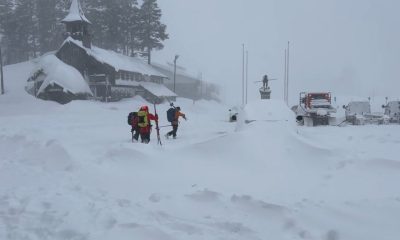
 International5 days ago
International5 days agoNinth Victim Recovered After Deadliest U.S. Avalanche in Decades
-

 International1 day ago
International1 day agoIran’s President Optimistic Ahead of Geneva Nuclear Talks with U.S.
-

 International3 days ago
International3 days agoOver 40 Million Affected by Major Snowstorm in Northeastern U.S.
-

 International1 day ago
International1 day agoStephen Hawking Photo Appears in Newly Released Epstein Documents
-

 International1 day ago
International1 day agoBill Gates Admits “Serious Mistake” Over Epstein Ties
-

 International3 days ago
International3 days agoNine People Killed in Two Armed Attacks in Manabí, Ecuador
-

 International2 hours ago
International2 hours agoCocaine Production Surges 34% in 2023 as Market Expands into Africa and Asia
-

 International2 hours ago
International2 hours agoClinton Accuses Republican Committee of Using Epstein Case to Shield Trump
-

 International2 hours ago
International2 hours agoFederal Judge Blocks Trump Policy Allowing Deportations to Third Countries































